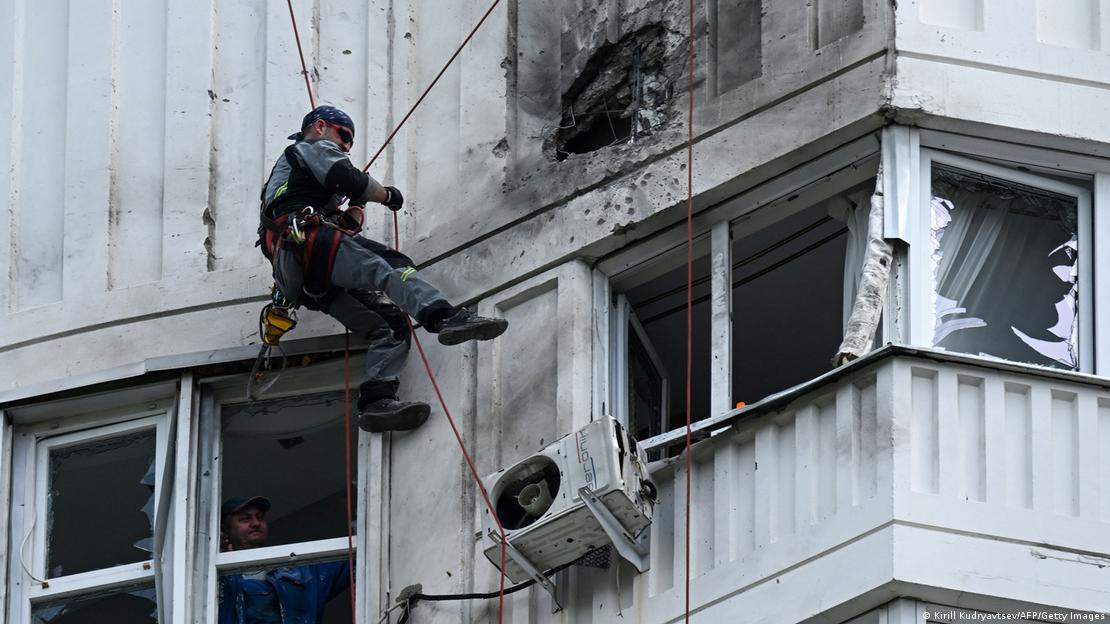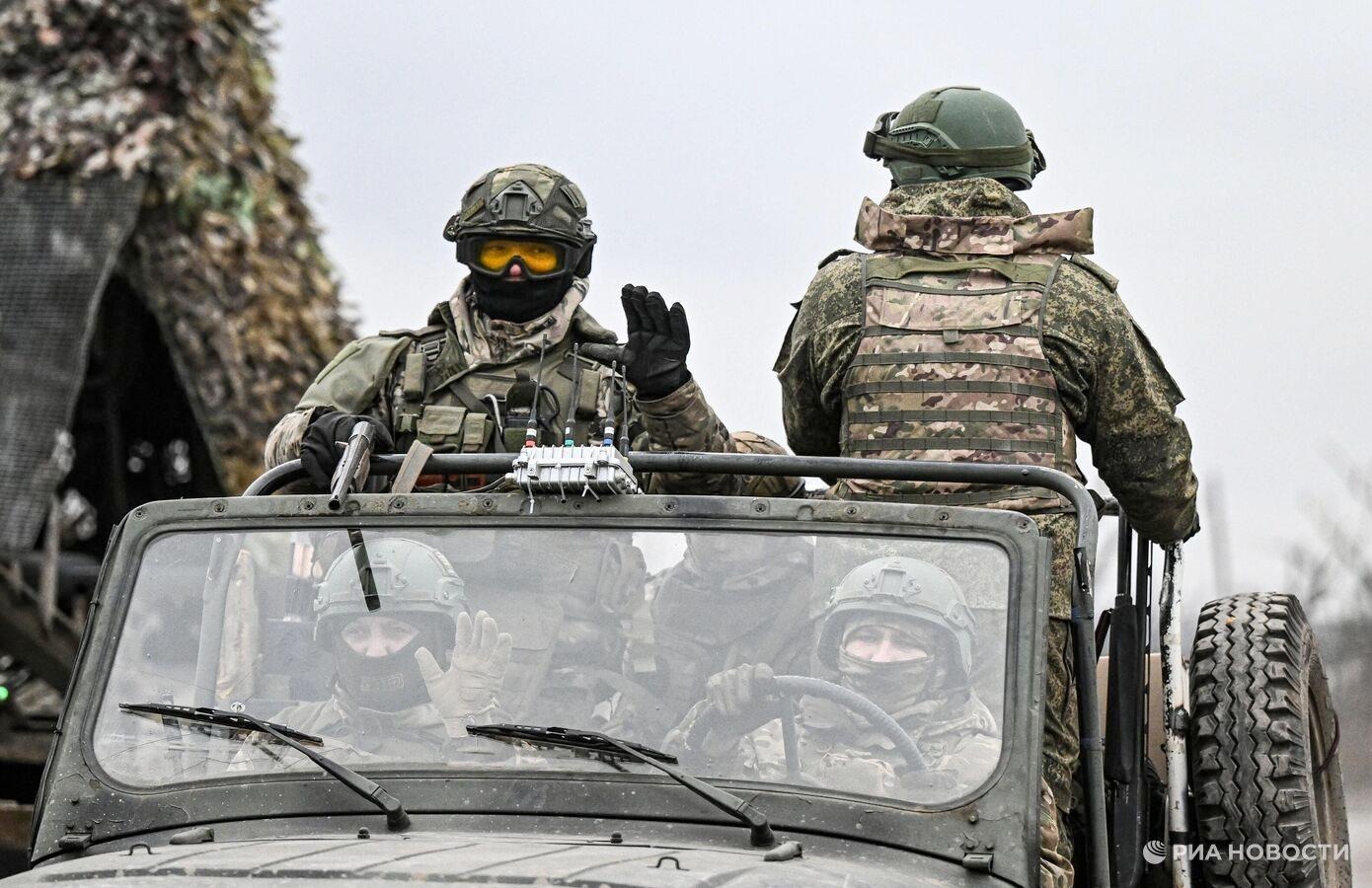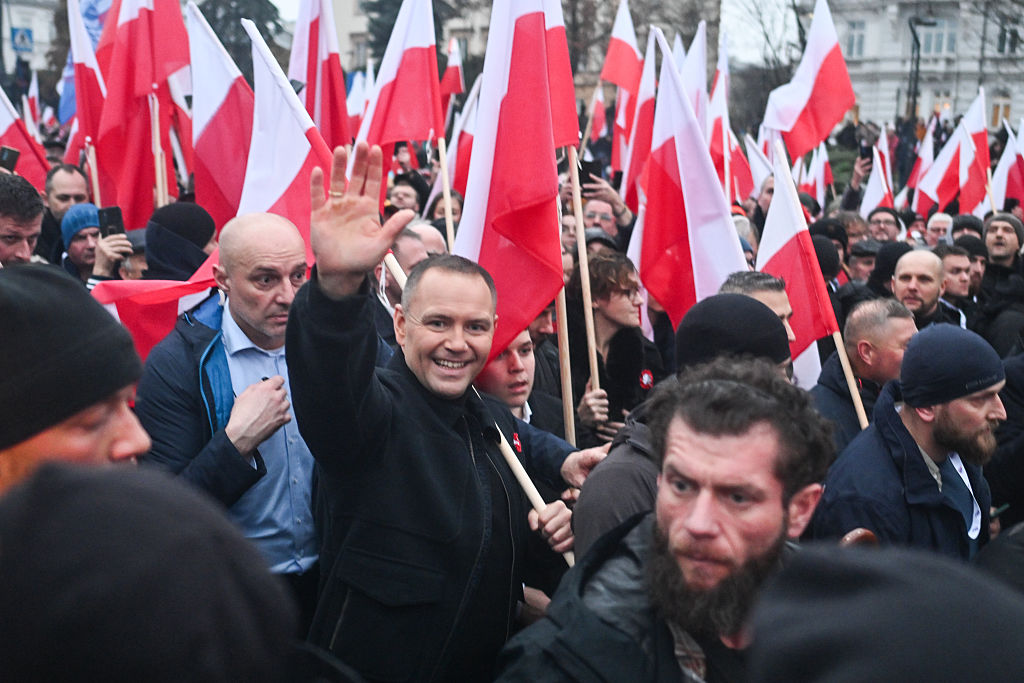
Gloating and Anxiety: How Russians React to War Reaching Their Homes
Gloating and Anxiety: How Russians React to War Reaching Their Homes
The war in Ukraine unleashed by President Vladimir Putin has finally reached Russian territory. This includes not only raids by sabotage groups into border regions (see EDM, May 31) but also the regular shelling of Russian cities. Furthermore, on May 30, the most massive drone attack to date targeted Moscow. The Russian Ministry of Defense reported that a total of eight drones were launched, three of which hit residential buildings (BBC News Russian, May 30).
The border town of Shebekino in the Belgorod region has been under continuous shelling for several days. Media reports indicate constant explosions, fires and issues with electricity and water supply. As a result, the Russian authorities were forced to evacuate the local population to other settlements (BBC News Russian, June 1). Other border areas have also been subjected to daily shelling, resulting in civilian casualties (Fontanka.ru, June 2).
While top Russian security officials employ increasingly fiery and threatening rhetoric, and the military attempts to convince the population of the successful progress of the “special military operation” (see EDM, May 30) despite evidence to the contrary, Russian propagandists boast that there is “no panic among the Russian population.” According to them, the West is disappointed that Russians have managed to “remain calm” (Vzglyad, May 31).
Loyal Kremlin sociologists attribute this relative calm to the belief in Russian air defense systems, the perception of the attacks as isolated incidents and the habit of “not paying attention” to the attacks. However, even they admit that “concern about what is happening is still felt” and predict “a situational increase in anxiety” while maintaining a generally “stable public mood” (Т.me/russica2, June 1).
Independent Russian political scientists concur that widespread panic is currently absent among the population, but they attribute it not to “faith in air defense systems” but to a lack of empathy. For example, well-known Russian political commentator Vladimir Pastukhov observes that most Russians from those regions not directly affected by the war react to the shelling of Russian cities with the same indifference and lack of compassion as they did to the shelling of Ukrainian cities in previous months (YouTube, May 31).
Another commentator, Ivan Preobrazhensky, agrees and notes not only indifference but also schadenfreude among Russians toward the victims. According to him, this has been particularly evident among Russians from front-line regions toward the “well-fed” Muscovites, among residents of the Moscow region toward citizens in the capital and finally among the majority of Russians toward the wealthy inhabitants of “Rublevka” (Dw.com/ru, May 30).
Thus, the gap between the war-affected regions and the “prosperous” areas continues to widen. According to independent journalists, Shebekino has been under heavy shelling for several days, with extensive destruction in the town and residents taking cover in basements during the attacks. The local population is outraged by the Kremlin’s and state media’s apparent disregard for what is happening (Zona.media, June 1).
In early June 2023, when entry to the town was closed and residents were evacuated in large numbers, the information blockade was broken and federal media began reporting on the situation in Shebekino (RBC, June 2). However, even these reports do not fully capture the reality on the ground. One look at the settlement’s largest Telegram channel “Shebekino Whispers” (Т.me/s/club_shebekino) reveals that almost all news from the end of May to early June has had an exclusively front-line character. The reports discuss evacuation procedures, protection against looters, rules of behavior during shelling and travel restrictions, among other issues (Т.me/s/club_shebekino, June 2). This starkly contrasts with news from the “peaceful” Russian cities, which ostensibly continue to live normal lives (Sobaka.ru, May 31).
This extreme atomization of society, on the one hand, impedes the Kremlin’s desired “rallying around the flag”; however, on the other, it does reduce panic levels among the population. Nevertheless, an increase in public distrust of the authorities is noticeable. It is indicative that such dissatisfaction can even be found in radical-patriotic communities, for example, in the comments under the so-called “Summaries of the Ukrainian Military Operation,” which are mainly read by the most ardent supporters of the war.
As expected, comments on these summaries reveal a significant number of supporters advocating for a “tough response” to Ukraine. However, at the same time, the number of complaints that “people continue to suffer” and that the authorities are doing nothing to protect them is growing (Vk.com/SVOReports, June 1). Similar sentiments can be observed in the comments from readers on the Military Review website—with sharp criticisms directed at the army and the “irresponsibility and incompetence” of the authorities, as well as open complaints that the “current corrupt regime is incapable of defending the country” (Topwar.ru, May 23).
These reactions appear natural, considering that the Putin regime has long relied on the infantilism of the Russian majority and their tendency to delegate all decision-making to the authorities. Even pro-Kremlin sociologists acknowledge that “society is inclined to delegate not only authority but also responsibility for what is happening to the country’s leadership” (Т.me/russica2, June 2). Consequently, it is not surprising that the population simultaneously blames Ukraine (as Russian propaganda intends) and its own authorities for these attacks.
These sentiments have also been fueled by the regular exposés of Yevgeny Prigozhin, who relentlessly criticizes the corruption and incompetence of the Russian military command (Рolitexpert.net, April 29). For now, the Wagner Group founder avoids direct criticism of the “Supreme Commander-in-Chief.” However, if current trends persist, it is all but inevitable that such criticisms will arise from both the radical-patriotic segment of society as well as the apolitical majority.


